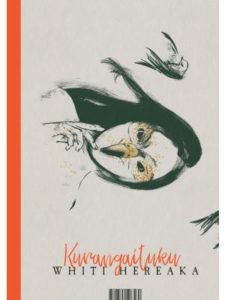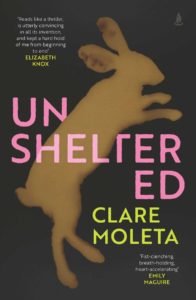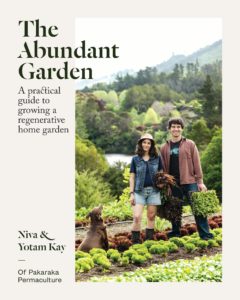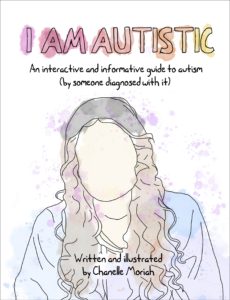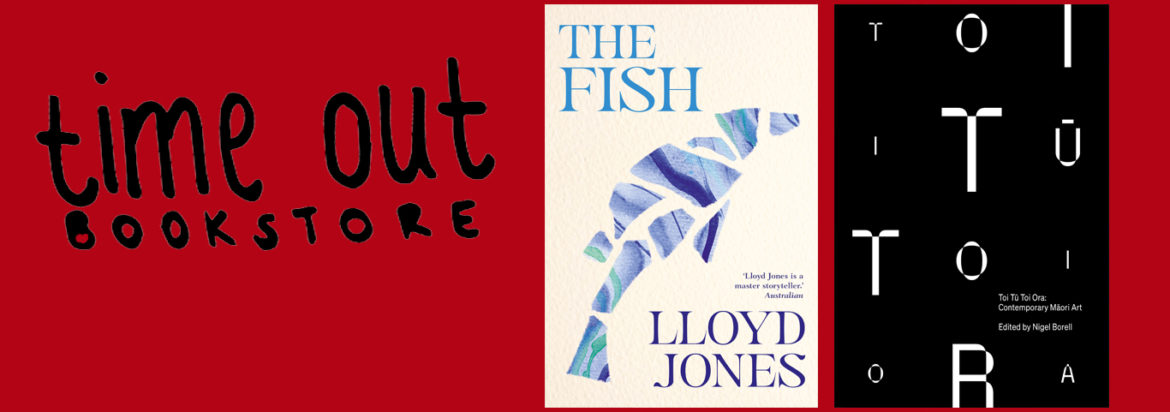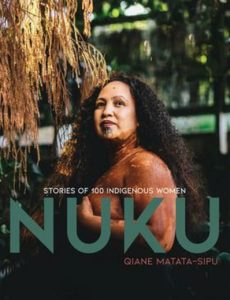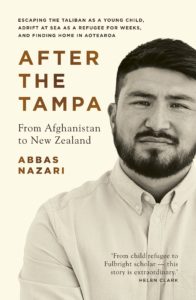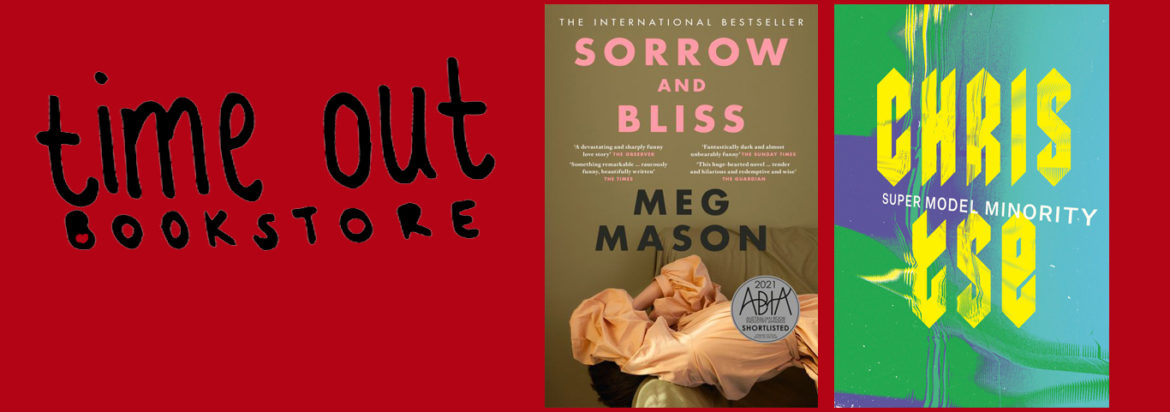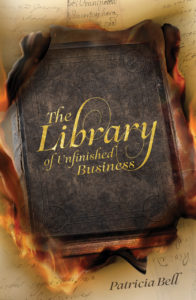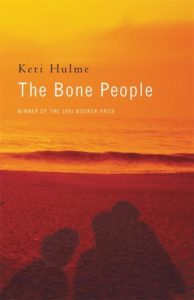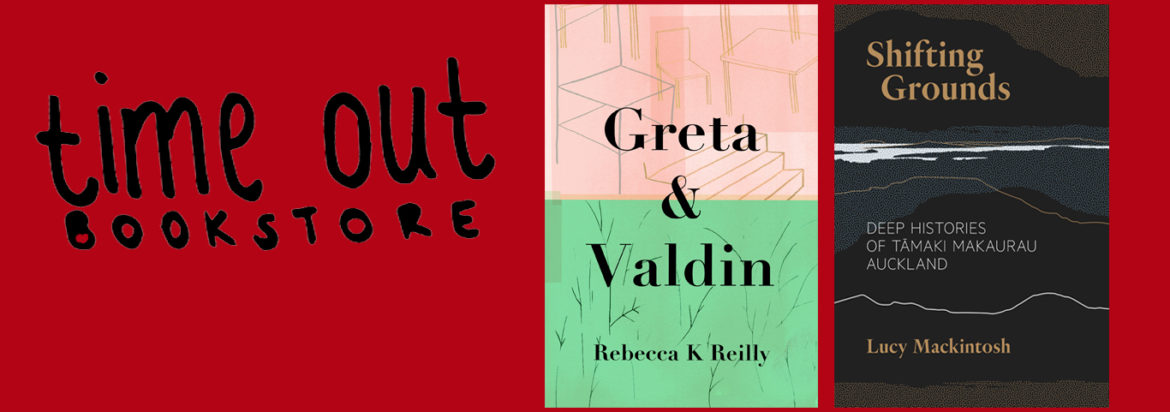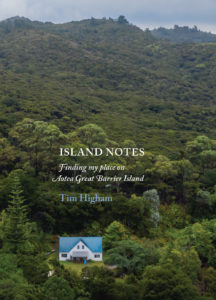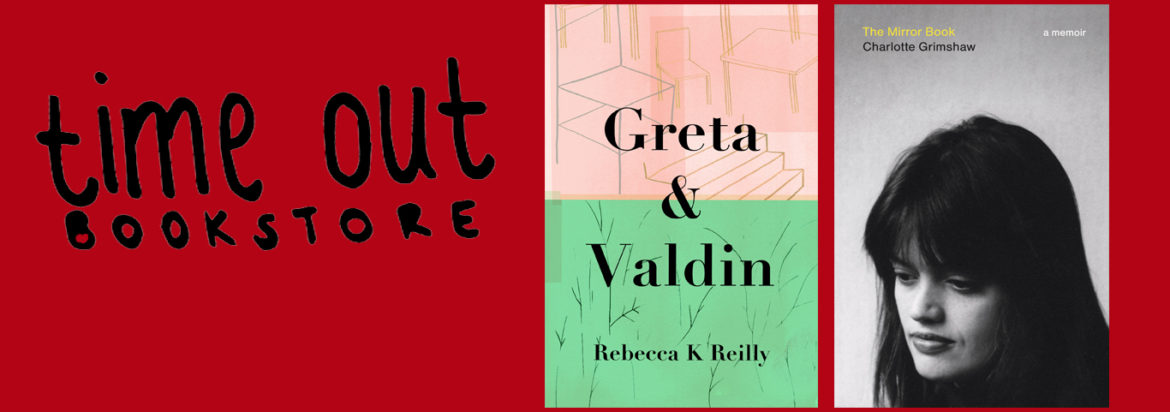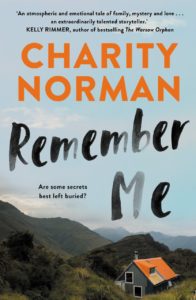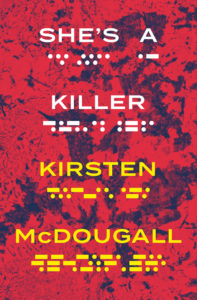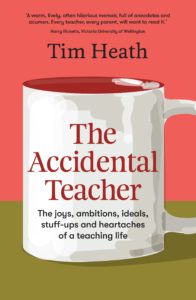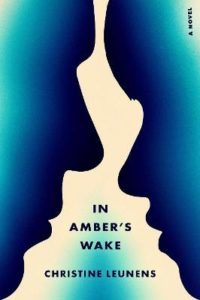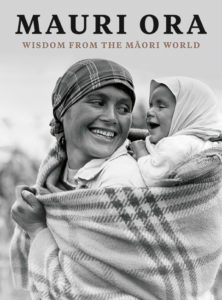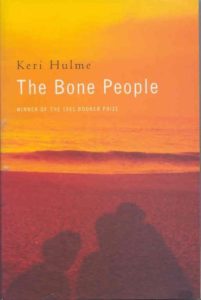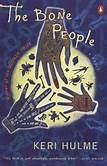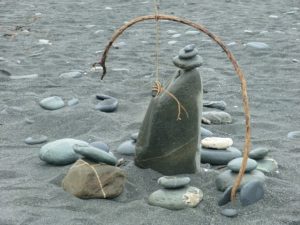
Time Out Books: NZ Bestsellers
For the week ending 10 April 2022
FICTION
.
.
 1. Greta & Valdin by Rebecca K.Reilly (VUP)
1. Greta & Valdin by Rebecca K.Reilly (VUP)
- The Ockham New Zealand Book Awards draws near, and this sparky novel, the only debut shortlisted for the $60,000 Jann Medlicott Acorn Prize for Fiction, continues to sell big. Josie Shapiro describes it as about ‘the particular nuance of modern romance and the dynamics of an eccentric and worldly family’. Read her full review here.
.
.
2. Kurangaituku by Whiti Hereaka (Huia)
Hereaka is another finalist for the Jann Medlicott Acorn Prize. Her first novel for adults was a decade in the making. A subversive, imaginative re-framing of the myth of the monster bird woman, Kurangaituku is an audacious structural feat. Listen to the Radio New Zealand review.
.
3. Sorrow and Bliss by Meg Mason (HarperCollins)
Longlisted for the 2021 Ockhams, this novel is currently longlisted for the Women’s Prize for Fiction in the U.K. An exploration of inheritance, desire and forgiveness, it’s the ‘blisteringly funny’ story of tall, blonde, and brilliant Martha’ set from the mid 90s to 2017, ‘as she navigates life with an undiagnosed mental illness’ Josie Shapiro writes on Read Close.
.
 4. A Good Winter by Gigi Fenster (Text)
4. A Good Winter by Gigi Fenster (Text)
A third Ockhams fiction finalist returns to the chart. Winner of the 2020 Michael Gifkins Prize for an unpublished manuscript, A Good Winter is a tense psychological thriller about women’s relationships and dangerous obsessions. ‘This unsettling portrayal of a disturbed mind is a cautionary tale about who our friends really are and who we let into our lives,’ writes Rebecca Hill in Canvas: her full review will be available here on the ANZL site on Wednesday.
.
5. The Fish by Lloyd Jones (Penguin)
The follow-up to The Cage, a 2019 Ockhams finalist, is original, lyrical and provocative, and (unsurprisingly) dividing critical opinion: see Vincent O’Sullivan at the Spinoff, Paula Morris at ReadingRoom, and Cait Kneller here at the ANZL.
.
.
NON FICTION
.
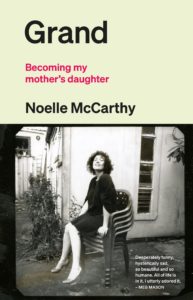 1. Grand: Becoming My Mother’s Daughter by Noelle McCarthy (Penguin)
1. Grand: Becoming My Mother’s Daughter by Noelle McCarthy (Penguin)
Another week at number one for an engrossing memoir that is ‘complex, thrilling and raw’ and ‘the opposite of comfort reading,’ writes Rachael King. ‘At the heart of this book is a revelation about lines of women in families, and trauma, and how it has the potential to repeat. In fiction, in myth, we’d say we are doomed to repeat it’. Read the full review on Reading Room.
.
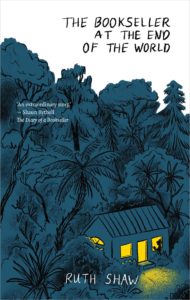 2. The Bookseller at the End of the World by Ruth Shaw (Allen & Unwin)
2. The Bookseller at the End of the World by Ruth Shaw (Allen & Unwin)
Ruth Shaw runs two bookshops in Manapouri in New Zealand’s far south. This winsome memoir includes book talk and stories about the people who frequent her shops, as well as adventures that include sailing and goldmining, pirates and drug addicts, and going AWOL from the military. Read an in-depth interview with Ruth at the Stuff website.
.
.
 3. The Mirror Book by Charlotte Grimshaw (Vintage)
3. The Mirror Book by Charlotte Grimshaw (Vintage)
The memoir sensation of 2021 is a General Nonfiction finalist in this year’s Ockham NZ Book Awards. A ‘fascinating portrait of not only a family, but the writing process. How we magpie material (go and make a story out of it) and what we build from it —and at whose expense?’ Read Rachael King’s full review here.
 4. Shifting Grounds: Deep Histories of Tāmaki Makaurau Auckland by Lucy Mackintosh (BWB)
4. Shifting Grounds: Deep Histories of Tāmaki Makaurau Auckland by Lucy Mackintosh (BWB)
A finalist in the Illustrated Nonfiction category at the Ockham NZ Book Awards, this is an exploration of the cultural histories of three of Auckland’s most iconic landscapes: Pukekawa (the Domain), Maungakiekie (One Tree Hill) and the Ōtuataua Stonefields at Ihumātao. Anna Rankin’s review for Metro includes photography by Haru Sameshima.
 5. Toi Tu Toi Ora by Nigel Borell (Penguin)
5. Toi Tu Toi Ora by Nigel Borell (Penguin)
A visual stunner featuring work by 110 Māori artists, this is the print version of the landmark contemporary Māori art exhibition at Auckland Art Gallery/Toi o Tāmaki. The editor is that show’s curator, Nigel Borell, who includes 200+ works from the 50s on. (He’s now the curator of the Wairau Māori Art Gallery in the Hundertwasser Art Centre.) Read Kennedy Warne’s account of the exhibition for e-tangata.
'One of writing’s greatest magics is to allow us – to use Kiri Piahana-Wong’s phrase – to slide outside the trap of time.' - David Taylor

